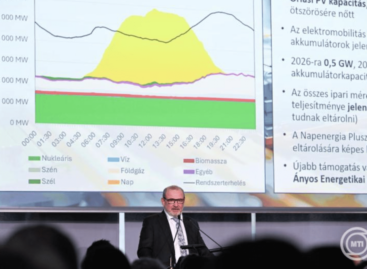Eurobarometer: we don’t want a United States of Europe
Around eight in ten Europeans (81%) agree that one of the priorities for the Conference should be how the EU could better handle crises such as the COVID-19 pandemic. More than a third (38%) agree strongly with this.

Two-thirds of Europeans (66%) believe that the EU project offers a future perspective for Europe’s youth. A similar proportion (65%) sees the EU as a place of stability in a troubled world.
- More than two-thirds of those surveyed are in favour of electing the President of the European Commission through the choice of lead candidates in the European elections. Less than a quarter (22%) are not in favour of such a process.
- Twice as many EU citizens see a possibility of voting for transnational lists in European elections as a good thing (42%), compared to only one in five (19%) who reject this proposal.
The Conference on the future of Europe
Around eight in ten Europeans (81%) agree that the Conference should prioritise dealing with how the EU could better handle crises such as the coronavirus outbreak, including more than a third (38%) who strongly agree.
Europeans who are willing to get involved in the Conference on the future of Europe would foremost like to do so through meetings in their local area, such as citizens’ debates or assemblies (44%). Citizens could contribute to the Conference’s ideas gathering process by answering a survey (34%), by putting forward ideas and proposals to European and national politicians (31%) and by taking part in online consultations via discussion platforms (30%), those surveyed said.
Youth and the future of the European Union
More than eight in ten Europeans (83%) agree that the Conference should specifically involve young people to foster new ideas, including four in ten (40%) who totally agreed.
Two-thirds of Europeans (66%) agree that the EU project offers a future perspective for Europe’s youth. A similar proportion (65%) agree that the EU is a place of stability in a troubled world, although this is lower than in the previous survey in 2018 (-11 percentage points).
European Elections and European Commission Presidency
The Future of Europe survey also looked into questions surrounding the European elections and the election of the Commission President. According to the survey, respondents are twice as likely to support voting for transnational lists in European Parliament elections (42%), compared to only one in five respondents who reject the idea (19%). 36% are indifferent to this issue.
More than two-thirds are in favour of a process to elect the President of the European Commission through the choice of lead candidates in the European elections, while less than a quarter (22%) say they are not in favour of this process.
While 61% agree that such a process would only make sense if EU citizens were given the option to vote for transnational lists, nearly two thirds of respondents (64%) agree that this approach would make the process of electing the President of the European Commission more transparent. Citizens believe it would also give more legitimacy to the European Commission (63%) and that it would represent significant progress for democracy within the EU (62%).
Related news
New EU tariffs could arrive in 2026 – this is how they could transform the market
🎧 Hallgasd a cikket: Lejátszás Szünet Folytatás Leállítás Nyelv: Auto…
Read more >Related news
(HU) A nap mondása
🎧 Hallgasd a cikket: Lejátszás Szünet Folytatás Leállítás Nyelv: Auto…
Read more >Storck Hungária: new sales manager has arrived
🎧 Hallgasd a cikket: Lejátszás Szünet Folytatás Leállítás Nyelv: Auto…
Read more >(HU) A nap mondása
🎧 Hallgasd a cikket: Lejátszás Szünet Folytatás Leállítás Nyelv: Auto…
Read more >








